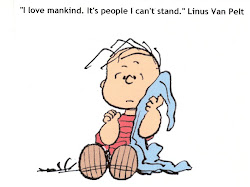Several weeks ago I wrote that I picked up a 1957 book, Giants of the Faith on a whim for $0.25. One of the chapters profiled the life of St. Augustine of Hippo, a pillar of the Christian faith that I knew relatively little about. As I hinted in that first post, Augustine wasn’t much of a saint in his youth – anthying but.
A large part of Augustine’s story and ultimate redemption is due directly to a persistent Christian mother, Monica. Born in Numidia in North Africa in 354 to Monica and a pagan father, Augustine was enrolled as a catechumen (one receiving preliminary spiritual instruction) and the sign of the cross made over him. But not baptism. It was then the custom of many Christian parents to postpone baptism until early adulthood so that the guilt attaching to the sins of youth might not be made greater and more dangerous by following upon baptism. In his later years, Augustine deplored the unfortunate custom. Comparing the reasoning underlying this practice to that of a sick man who wished to be made sicker in order that he might more quickly be healed.
But in his youth Augustine sowed many wild oats, even when he had his mother living under his roof (who never stopped praying patiently for her son). Augustine came to adopted the beliefs of Manichaeism, followers of Mani, a Persian who had founded a new creed in the middle of the previous century (“Mani” – doesn’t that sound like he could be in the cast of Jersey Shore?). The Manichaean doctrine (widely distributed and very popular) flattered the intelligence by maintaining that no doctrine should be accepted on faith. That good and evil existed for sure, but when a Manichaean fell into sin, they could simply claim that their better nature was overcome by the forces of evil. Wow, how 21st century this guy was. The young Augustine bought it hook, line and sinker and made the most of the good life, even as an intellectual and teacher.
Fast forward a number of years to where a little maturity and motherly prayers slowly began to kick in to Augustine’s reasoning and powers of observation. The Mani evidence wasn’t adding up and Augustine struggled with that realization. It became painfully clear to Augustine that the road block to his attainment of the divine truth and wisdom was not intellectual, but moral. Seeking out Christian leaders, he came to realize that to be wise, it is not sufficient to merely know the truth, but it is necessary to live justly and virtuously. This he learned not from Plato he said, but from the teaching of Jesus as recorded in the scriptures.
Still, even with the knowledge of the path he should take, he wrestled with the wild, enjoyable life he was leading. “Soon, in a little while, I shall make up my mind, but not right now.” His oft-repeated half-prayer was “Give me Chastity, O God, but not yet!”
Augustine's conversation to the Christian faith finally came in 387 at 33 years old in the agony of a garden experience, much like the ordeal of Christ in Gethsemane. Like the Apostle Paul before him, Augustine could honestly cry out, “The good which I will, I do not; the evil which I will not, that I do.” Augustine would later write on this chapter of his life:
“I still thought that it is not we who sin but some other nature that sins within us. It flattered my pride to think that I incurred no guilt and, when I did wrong, not to confess it... I preferred to excuse myself and blame this unknown thing which was in me but was not part of me. The truth, of course, was that it was all my own self, and my own impiety had divided me against myself. My sin was all the more incurable because I did not think myself a sinner.” (Confessions, Book V, Section 10)
Augustine’s moral conversion had been preceded by an intellectual one and the culmination of many discussions with “wise” men coupled with the prayers, sacrifices, and example of his mother, Monica. Sinner to saint.
Augustine went on to become that pillar of faith, certainly revered in the Catholic and Anglican churches. But many Protestants also consider him to be one of the theological fathers of Reformation due to his teaching on salvation and divine grace.

No comments:
Post a Comment